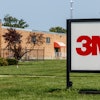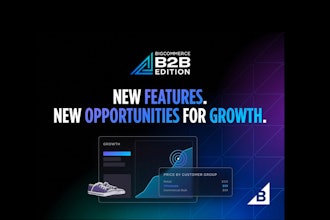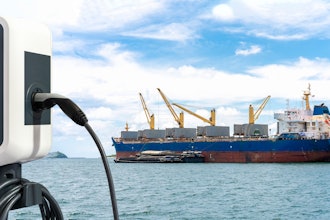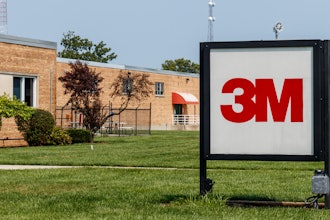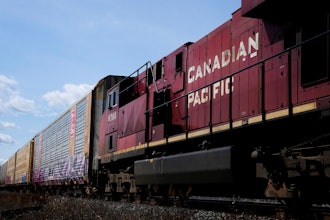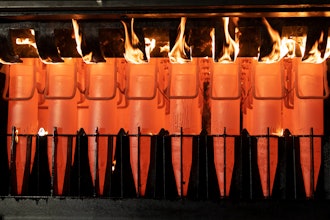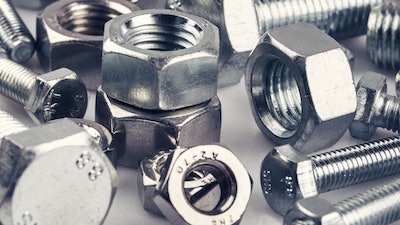
Plated fasteners play a critical role in both the assembly and installation of manufactured products. As an integral product component, a dependable and affordable supply of fasteners is required by Original Equipment Manufacturers (OEMs) at all times.
Today most fasteners are sourced offshore. Without a trusted fastener distributor, OEMs risk receiving plated fasteners that are under spec, which can impact the performance and longevity of the fastener. Additionally, any significant changes in the quantities required can take a long time to fulfill.
OEMs typically select plated fasteners, where the metal is permanently joined to a conductive surface, when hardness, electrical conductivity and wear resistance are required. Usually, fasteners are plated where they are manufactured - largely in Asia.
“Today, most fasteners are manufactured and plated offshore, often with zinc. Although you can generally obtain the same types of coatings we have domestically, there can be quality issues. You never know for sure if what you are purchasing entirely meets the specifications even if the plating looks nice and bright,” said Johnny Rose, President of AFT Industries, a leading fastener and industrial supply distributor headquartered in Mansfield, Texas.
Founded in 1984, AFT Industries has grown from a small metal finishing shop to an international supplier of fasteners and industrial supplies. The company provides in-house metal plating and finishing, manufacturing and kitting/assembly for OEMs and has over 30 distribution centers across the U.S.
Rose, whose company distributes over 500,000 standard and custom fasteners through an easy-to-use e-commerce website with highly competitive pricing, offers a few insider tips.
 In-house plating and testing capabilities from a domestic distributor offer significant time and cost savings for OEMs when the order size changes or there is a question about meeting strict specifications.AFT Fasteners
In-house plating and testing capabilities from a domestic distributor offer significant time and cost savings for OEMs when the order size changes or there is a question about meeting strict specifications.AFT Fasteners
INSIDER TIP No. 1: Specify RoHS compliant plating or take your chances
According to Rose, most OEMs today desire RoHS compliant plating. The directive restricts the use of lead, mercury, cadmium, hexavalent chromium, polybrominated biphenyls and polybrominated diphenyl ethers (flame retardants) in electrical or electronic products to maximum permitted concentration levels, with a few exceptions.
“Unless you specifically request RoHS compliant plating from the supplier, you probably will not get it because hexavalent chromium is still a little cheaper,” said Rose. “Suppliers try to use [hexavalent chromium] when not specified because they want to squeeze out every penny of profit. So, OEMs that only specify ‘commercial thickness’ may not be getting RoHS compliant plating also.”
Even if the coating is technically RoHS compliant, Rose said that not all chromates are created equal, so OEMs may still receive products that only satisfy very minimal requirements.
“The plated fastener may be able to pass the low-end 12-to-24-hour salt spray tests, but not 96-to-128-hours,” said Rose. “If you want higher-end plating, the only way to be sure you get it is to have it tested when it arrives. You may find you need to have them re-plated.”
INSIDER TIP No. 2: Select a fastener distributor with in-house plating capability
Distributors that offer in-house fastener plating can deliver much faster turnaround and greater responsiveness when orders change or increase in quantity.
There are many reasons that this is advantageous to the customer, including the not-so-uncommon scenario where the number of fasteners required is substantially underestimated.
In one case, Rose said a customer ordered 500,000 items from AFT and came back and asked for 800,000, which would have taken six months if sourced overseas.
“If there is an emergency, I can prioritize the OEM and ship parts within 24 hours or even the same day if necessary to at least keep them going,” said Rose. “Once I locate the fasteners from other distributors or in our inventory, we can plate them and supply the entire order even if it’s for hundreds of thousands of pieces.”
For distributors without in-house plating services, the costs can escalate quickly. The parts would have to be shipped to a nearby plating operation. It would then take a day or two for the plating to be completed, even for a rush order.
Once plated, there are freight costs to ship the fasteners back to the distributor. The customer can expect to pay for multiple markups, adding to the overall costs.
Another benefit to selecting a distributor with in-house plating operations is to manage a “mix” of different types of coated fasteners more easily.
For example, if an OEM needs clear, yellow and black zinc fasteners, the items can be purchased, plated in various colors and quantities and delivered as needed.
With an extensive knowledge of plating, fastener distributors can also provide valuable advice regarding the available alternatives.
“One of our customers asked about an alternative to hot dip galvanizing for corrosion resistance and we were able to suggest different coatings until we found a suitable replacement,” said Rose.
Finally, some manufacturers may want to work with a domestic distributor simply to support items that are Made in America.
INSIDER TIP No. 4: Test, test and test again
Most distributors do not have sophisticated equipment to analyze coatings on fasteners. In fact, it is rare even within plating operations.
The only way to determine the quality of plated fasteners is to test with in-house equipment such as salt spray testing chambers, x-ray and handheld analyzers that determine coating thickness.
Using an array of sophisticated testing equipment at its facility in Mansfield, Texas, AFT was able to provide a customer with a report that showed that a fastener they wanted re-plated met their original specifications.
“A customer wanted us to re-plate some fasteners they sourced overseas that they thought were underplated. After x-rays, we found the issue was not the plating thickness, but that the threads were incorrectly machined. Re-plating the fasteners without this information would not have solved the issue and would only add unnecessary costs,” explained Rose.
INSIDER TIP No. 4: Domestic Distributors for Unique or Difficult Items
Some types of plated fasteners are impractical to obtain overseas when the volumes are low or the cost too high. In addition, some specialty plating options are best sourced from domestic distributors.
Silver plating is one example, with sectors like electronics and semiconductors often turning to the coating for screws due to its superior electrical conductivity properties.
 Silver plated fasteners can be impractical to obtain overseas when the volumes are low or the cost too high, and are best sourced from domestic distributors.AFT Fasteners
Silver plated fasteners can be impractical to obtain overseas when the volumes are low or the cost too high, and are best sourced from domestic distributors.AFT Fasteners
According to Rose, another popular option is zinc-nickel, which is ideal for corrosion protection because it is an environmentally safe alternative to cadmium.
Zinc-nickel plating combines the sacrificial coating properties of zinc with the strength, ductility and corrosion resistance of nickel for a surface finish that can be superior to cadmium. However, it can be difficult to apply and is best sourced domestically
In-house plating and testing capabilities from a domestic distributor offer significant time and cost savings for OEMs when the order size changes or there is a question about meeting strict specifications.
As a result, OEMs do not need to rely only on offshore sources when domestic options can readily satisfy their volume and quality requirements.



